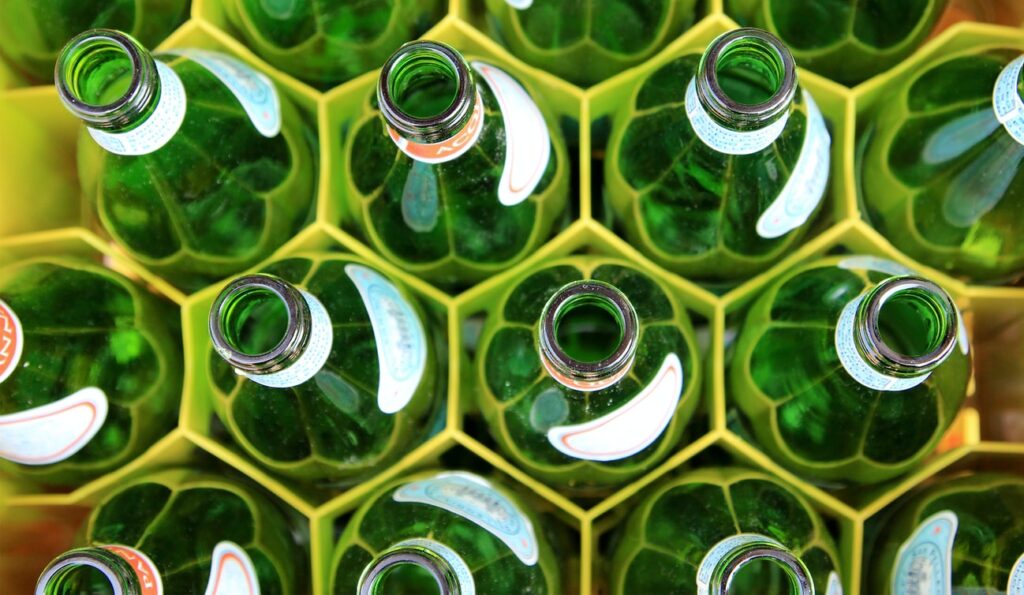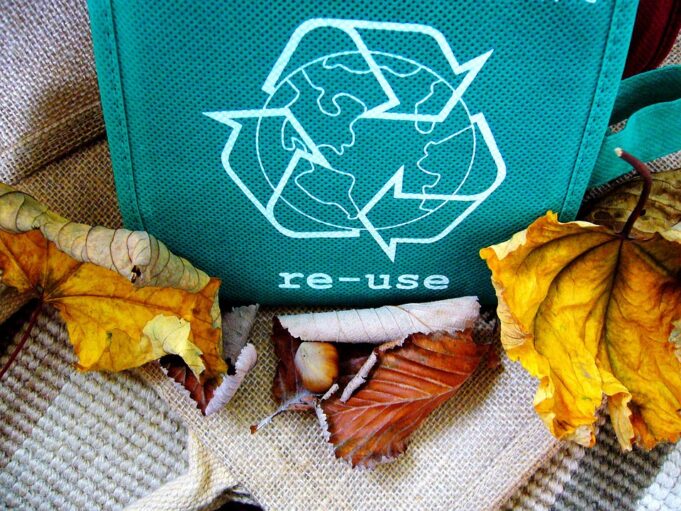According to The World Bank research, Humans produce over two billion tons of solid waste each year, with at least one-third of that waste not managed in a way that helps the environment. Global waste is also expected to grow to approximately 3.4 billion tons by 2050, with a 19% increase in high-income countries.
The lifestyles many of us lead are wasteful, and sustainability is still not at the forefront of people’s minds as they go about their day. However, that doesn’t mean it’s not possible to turn that around. We can all lead less wasteful lives by doing some of the following things.

Fixing Our Possessions
We live in a throwaway society, which means that if something is broken, we dispose of it and buy a new one. Old items end up in landfills, and demand remains high for waste-producing factories to continue manufacturing items on a mass scale.
Even if factories are no longer making parts for an appliance, vehicle, or something else, there is often potential for them to be made by small businesses. For example, aluminum, alloy, and bronze castings like those from richmond-industries.com can be made of many items in firms that make a living out of providing casting and machining services.
Using processes like sand casting, businesses can heat metals in a furnace, pour them into sand molds, and create a new product of the item you haven’t been able to purchase from a mass producer. Such businesses can also generally assist with other related needs like plating, painting, assembly, and polishing. A previously old and broken possession could function as good as new with an expert’s help.
Make Wiser Clothing Purchases
We already use natural materials in our households like rugs and blankets, so there’s no reason why we can’t start purchasing more clothing made from these materials. Bamboo, merino wool, hemp, silk, and cashmere are all beautiful natural fibers that break down in the environment within a matter of months.
When a garment reaches the end of its life, you can simply throw it into your compost bin and let the natural elements work their magic. You can’t say the same about synthetic materials like polyester and nylon. Nylon can take up to 40 years to break down, while polyester and lycra might remain in the earth for over 500 years.

Use Less Single-Use Plastic
Up to half of the 380 million tons of plastic we produce each year is for single-use purposes. We might discard that plastic immediately after unwrapping it, yet it remains on the planet for hundreds of years.
Manufacturers must lead the change in reducing how much single-use plastic we use, but there are small changes we can also make to limit the demand for it.
Use reusable shopping bags when you visit the grocery store instead of plastic ones. Some countries like New Zealand have already banned their use. An equally easy change is carrying a reusable metal or silicone straw in your vehicle so that you don’t have to request a single-use one from your local takeaway restaurant.
Purchasing fresh fruit and vegetables rather than pre-prepared ones and shopping from bulk stores with your own containers can also be an excellent start.
Limit Unnecessary Vehicle Use
Our cars and trucks are practical, but their convenience has meant we’re relying on them when they aren’t always necessary. With fossil fuels one of the leading causes of climate change, it can be worth changing your habits to help the environment.
You can start small by swapping at least one car trip in your day with an alternative form of transport like public transport or a bicycle. Carpooling, walking, biking, or skateboarding to work may also be something you consider to limit your carbon footprint.
If you need to drive to a store to purchase something, see if you can wait until you need multiple items so that you can make fewer trips and burn less fuel. A significant change you might also like to make is purchasing an electric vehicle that utilizes sustainable energy to transport you.

Purchase Eco-Friendly Products
Small changes can have a huge impact, so never underestimate the value of making one minor alteration that benefits the environment. Swapping your skincare and haircare products in plastic bottles for similar products in bar form could save hundreds of plastic bottles from ending up in landfills over your lifetime.
Even something as simple as using floss made of biodegradable materials and beeswax wraps instead of plastic for your sandwiches may have more of an impact than you might think.
Use Metal and Glass
Alongside having metal parts made for possessions you believe can’t be repaired, you can also make a point of purchasing as many metal and glass items as possible, rather than their more environmentally damaging plastic counterparts.
Opt for metal and glass water bottles rather than plastic ones, and even consider transitioning from plastic to longer-lasting materials with other items you own, such as lunchboxes and pantry food packaging.

Start Composting
You might think that throwing food waste in your trash can isn’t a large problem. However, when food is buried under layers of waste without any oxygen or light, it can’t break down as effectively as it would in a natural environment.
Organic materials thrown into engineered landfills without access to oxygen can also produce methane gas, which is bad for the environment. If you have space to do so, start composting.
You can purchase these as pre-made bins or create your own. Alongside food scraps, you can also fill these bins with natural materials like lawn clippings, leaves, shredded newspaper, and even coffee grounds. These materials break down with your food waste and can be turned into a nutrient-rich matter for your gardens.
Not only does the act of composting allow your gardens to thrive, but it also reduces how much waste you send to landfills. When combined with other waste-saving measures like reducing single-plastic use and purchasing eco-friendly products, you can produce significantly less waste each day than people who don’t adopt the same measures.
Leading a less wasteful lifestyle doesn’t happen overnight, and it can be daunting to get started. However, with a tiny change each day, such as making a new part for an appliance and opting out of single-use packaging, you can be on your way to reducing waste and helping the environment.















